I’m excited to have Karl Hughes as a guest on this episode of Let’s Talk Marketing with NDUB. Karl Hughes is the founder of Draft.Dev, a content marketing agency that creates technical marketing content for software startups. He shares how he got his start in marketing, why he started his agency, and why B2B marketing is so important for software companies.
Here are some highlights from my conversation with Karl. Enjoy!
Nathan
Hey, what’s up everyone?! Today, we’re going to focus on B2B marketing content with my man, Karl Hughes from draft dev. What’s up Karl!
Karl
Hey, Nathan, it’s good to be here. I don’t know if I can match your energy level, but I’m going to attempt it today. So let’s have some fun.
Nathan
Oh, man, the B2B marketing content. Who can go to sleep on that? Yeah. How exciting is that?
Karl
I wish I weren’t a nerd and didn’t think it was exciting, but I’ll try to keep it lively.
Nathan
Karl has an impressive background. I’m not going to steal his thunder, so Karl, can you please tell the audience who you are and what you do?
Karl
Yes, I have kind of a weird background for a marketer. I’ll admit it. And there’s some advantages and disadvantages to that. So, I went to school for mechanical engineering and then became a software engineer. And so for the first 10 years of my career, I was basically leading engineering teams building up technology at small startups. What happened was, I got asked by a bunch of companies to start writing blog content for them. These were tech companies that wanted an engineer’s perspective on their products.
And so I did that a few times here and there on the side. And eventually, long story short, COVID hit and the company I was working for started to hit a rough time. So I was like, well, let’s just try writing full time, like, I’m going to switch. I’m not going to be a software engineer, I’m going to be a full-time writer. Let’s see what happens and pretty quickly we kind of established a little niche and got a bunch of clients.
They referred other clients and I started hiring people. So two years into Draft.dev, and we’ve got about 90 clients, about 16 full-time people and a couple of hundred contractors that help service them and everything we do is B2B. It’s specifically even, narrow technical marketing content for engineers, but still like a lot of the big picture B2B principles apply.
Nathan
Wow man. We got to unpack some of this stuff for those that don’t know B2B. Can you explain the B2B marketing and then go into the content? And I definitely want you to share how you scaled from zero to 90 in two years with this. Crazy.
Karl
It’s been fun. Yeah, so B2B is business-to-business content. So, you know, in marketing, you could broadly put marketing into two buckets of B2C, business to consumer. So that’s things like e-commerce, direct service sales of your cell, a maid service for homes that’s like to consumers. So there are those kinds of things. And then, there’s business to business, which is what we do, where we sell or we help companies sell software into companies that will then buy that software, license it, and use it across the organization.
So you know, broadly speaking, the big difference is that the purchase price is much higher, but the decision-making process can be much longer. There might be five or six different people who have to be involved, whereas a consumer purchase that’s just between you and the end buyer, may be sitting on their iPhone and ordering whatever you got online.
So there are pros and cons to both in our market. What we have to do is really quickly build a lot of trust with a lot of different stakeholders and to your point, that’s kind of been the key to growing fast.
It’s building trust and doing good work for clients.
Nathan
Okay Karl, that’s a great answer. But come on bro. Content? That’s not sexy at all. And of course, If you were to say yeah, I do content marketing, people are going to look at it like… what? Can you break down exactly how you provide that technical service?
Karl
Yeah, so here’s the thing. So if you’re a company that wants to sell this stuff to software engineers, you’ve got to go reach them somehow and you have to build trust with them. You have to make them understand that what you do is useful and valuable. You have to quickly make them decide that your tool is the right tool for their job. And usually, a software engineer goes to Google when they’re looking for new tools. They type in: “How do I test my code when I’m writing Python? “ And from there, they’re going to get search results that tell them “ hey, here’s a bunch of options”.
So if any company out there wants to be in that list of options, they almost certainly are going to do some level of content marketing. And that’s kind of where we come in. So we create long-form articles, primarily where we’re showing software developers, how to use a tool, the advantages of using the client’s tool, and some of the comparisons versus competitors. There’s a lot of different things that helps the client establish authority and get ranked up higher in those search engines as well as things they can share out with sales prospects, their newsletter, and other mediums.
Nathan
I’m glad that you made the distinction with long form. For the listeners that are not familiar with long and short form, can you break down the difference? Why choose long form over short form?
Karl
Yeah. I mean, obviously there’s no right answers in marketing. I’m relatively new as a marketer, I’m more of a tech person. I’ve had to pick up marketing as I go. One of the things I’ve learned is that there’s no formula, right? It could be really quick snippets or descriptions that are on your site. It could also be product descriptions where there’s just a couple of lines.
Long-form generally refers to blog posts, eBooks, and maybe even those big, long LinkedIn posts that you see a lot of these days. Like all of those could be some long-form content if you wanted to break it up that way.
And then, you’ve got stuff like a video that fits into its own category entirely. So yeah, we’ve stuck with long-form written content because we put ourselves into the reader’s mind, or in this case, a software engineer. They’re sitting at their desk, they’re looking for solutions, and they want to find the answer to “how do I test my Python code,” right?
They get a big article that has code samples for them, and it’s got a demo application they can use to actually run it themselves and learn. So a lot of our content is really educational in nature, which makes it very rewarding and fun because not only are we getting to write this stuff for our clients to help them build their businesses, but we’re also getting to educate the end readers. So I like that intersection, and I like where marketing becomes more educational rather than sell, sell, sell.
Nathan
Why not tie to your sales like a glorified copywriter?
Karl
Yeah. So one of the big challenges in writing something for a B2B audience is that you’re writing for really smart people who know what they know really well. So the tricky part about writing for software engineers is if I asked you to write me a 2000-word article about the advantages of Kubernetes, you’re going to have a really hard time, right? These are not words you even use on a daily basis. I don’t even use these words.
So, the point is having a software engineer who uses Kubernetes at work every day that gets to tell you about the advantages of it, and they’re going to be much more authoritative, much more interesting, and much more unique. This is one of the key things in B2B marketing that’s a little different from consumer marketing. You need expertise to tell a good story and to convince people that you know what you’re talking about and that your brand is worth investing in.
Nathan
Man, how did you get into this?
Make sure you listen to the whole podcast on iTunes or Soundcloud below.

